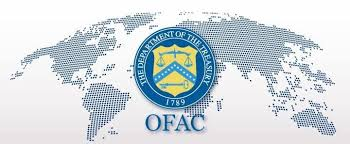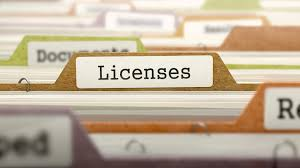What is OFAC Clearance?
To ensure that the OFAC Clearance process is carried out correctly, many companies seek the assistance of OFAC lawyers. These professionals have in-depth knowledge of U.S. sanctions policy and the rules established by the Office of Foreign Assets Control.
OFAC lawyers help clients understand the complexities of sanctions law, analyze potential risks, and provide compliance recommendations. Their work includes reviewing the ownership structure of companies, evaluating transactions and agreements for compliance with sanctions restrictions, and preparing documents for submission to OFAC.
The involvement of OFAC lawyers is especially important in complex cases where a company or individual may have indirect ties to sanctioned entities. Lawyers help to minimize the risk of fines and legal consequences by ensuring that all client actions comply with OFAC requirements. Their experience and knowledge greatly simplify the process of obtaining OFAC Clearance and reduce the likelihood of errors.

What Does OFAC Clearance Mean?
OFAC Clearance is a verification process that confirms a person or organization does not violate economic sanctions imposed by the U.S. Office of Foreign Assets Control (OFAC). These sanctions may apply to foreign governments, companies, organizations, or individuals considered a threat to national security, the economy, or international stability.
This process ensures that entities undergoing verification comply with OFAC requirements, including not appearing on sanction lists such as the Specially Designated Nationals (SDN) list or other related registers. It also involves reviewing transactions, agreements, and business partners to guarantee that no activities conflict with the imposed restrictions.
The Process of Obtaining OFAC Clearance
The process of obtaining OFAC Clearance involves a verification procedure to ensure compliance with established sanction restrictions. The process requires several steps to confirm that individuals or entities do not violate the requirements of the U.S. Office of Foreign Assets Control (OFAC).
In the first stage, data about individuals or organizations is checked against sanction lists, such as the Specially Designated Nationals (SDN) list. This review determines whether the subject is included in these registers, using specialized databases and software.
The second stage involves analyzing financial transactions and partnerships. This helps identify potential connections with sanctioned entities or companies controlled by such individuals.
In the final stage, documentation is reviewed. Organizations must provide complete information about their ownership structure, partners, and the nature of their activities. All submitted data is thoroughly examined for compliance with OFAC requirements.
Common Scenarios Requiring OFAC Clearance
OFAC Clearance is required in situations where individuals or entities engage in financial transactions or agreements that might involve sanctioned parties. The verification process ensures that such activities comply with the regulations of the U.S. Office of Foreign Assets Control (OFAC).
One common scenario is international trade agreements. If a company plans to work with foreign partners, it must ensure that these partners are not included in sanction lists. Another example is investing in foreign businesses. Before investing, companies check the ownership structure of the business to avoid connections with sanctioned individuals.
OFAC Clearance is also frequently needed in banking transactions. Financial institutions verify clients to avoid cooperating with parties that might be under sanctions. Another example is the screening of humanitarian organizations working in regions with high levels of sanction controls.
Challenges in Securing OFAC Clearance
Obtaining an OFAC Clearance can be a complex process due to a number of factors. The main challenge is the need for careful verification of information to avoid errors or omissions that could lead to sanctions or fines.
One of the challenges is the difficulty of identifying links to sanctioned entities. Companies or individuals trying to conceal their presence on sanctions lists often use complex ownership structures or third parties. This makes it difficult to identify the true owners or beneficiaries.
Another challenge is the constant updating of sanctions lists, such as Specially Designated Nationals (SDNs). Organizations need to monitor the changes in real time to avoid dealing with newly sanctioned entities.
In addition, the process can be complicated by a lack of experience or resources. Many companies do not have access to automated verification systems or qualified sanctions specialists. This increases the risk of errors in the verification process.

How to Ensure a Smooth OFAC Clearance Process
To successfully obtain OFAC Clearance, it is important to follow clear rules and implement proven practices. This will reduce the risk of delays or errors during the inspection.
First, you need to regularly update your customer, partner, and transaction data. This helps to avoid cooperation with entities that may be included in sanctions lists. Using specialized software for monitoring sanctions is a key tool for this.
Second, it is important to ensure that employees are properly trained. Training on sanctions policies and verification procedures will help staff understand all requirements and fulfill them effectively.
In addition, companies should develop a clear internal control policy. This policy should include procedures for reviewing each agreement and transaction, as well as regular audits of processes to identify possible deficiencies.
Finally, it is worth contacting sanctions experts when in doubt about a particular transaction or client. This will help avoid legal issues and ensure compliance with OFAC requirements.
Legal Advice
We help people effectively fight their offenders back and successfully defend their own stand!